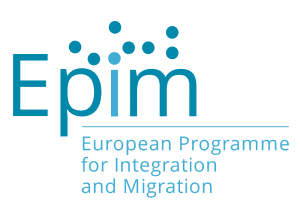At the front line in Europe: testing alternatives to detention in Greece and Italy
Written by Barbara Pilz and Jem Stevens
How can we move away from the increasing reliance on immigration detention in EU border countries, which receive a high proportion of arrivals and are under pressure from the EU to prevent onward movement? In the current political environment, it’s not easy
But convinced that there is another way, civil society organisations in Greece and Italy are starting alternative to detention (ATD) pilot projects aiming for systemic change on immigration detention. They are joining a group of NGOs at the front line of solutions-based advocacy, working to build migration management systems that respect rights and dignity and don’t rely on detention in Europe.
Greece – shifting mentalities away form detention
This is the first time a case management based ATD pilot is being implemented in Greece, as increasing recognition of the harmful potential of immigration detention has been drawing attention to alternatives to detention nationwide. Through the pilot, Human Rights 360 aims to constructively engage with both municipal and national authorities to shift mentalities away from detention as the default option and ensure current legal frameworks are being implemented.
Eleni Takou, Deputy Director and Head of Advocacy at Human Rights 360 said:
“The criminalisation of migration has increased homelessness and social tension in Greece. Through the piloting of alternatives to detention we can show that, for example, placing and supporting a family in the community during their migration process increases social cohesion and compliance with the system. In that context, Human Rights 360 wants to be a central unit that leads people to the best outcome possible for their case.”
Human Rights 360 will focus their holistic case management efforts on migrants with irregular migration status and those at risk of becoming irregular in Greece. Based in Athens, the pilot will work with at least forty migrants over the next two years providing comprehensive case management, linking to legal, psychosocial, and educational support, as well as facilitating of access to basic services/needs.
Italy – the approach needs to change
In Italy, CILD and Progetto Diritti’s pilot will provide holistic case management to migrants at risk of detention, including beneficiaries of humanitarian protection (a type of protection which was recently abolished), vulnerable individuals, and persons under labour exploitation.
Linking practical implementation with advocacy, the pilot will take advantage of the reach and diversity of expertise within CILD’s civil society coalition and of Progetto Diritti’s case work experience. It aims to support migrants to work resolve their cases while strengthening national evidence and increasing ATD practice among CSOs in Italy.
Flaminia Delle Cese, ATD Pilot Project Manager at CILD said:
“Since 1998 the maximum detention period in Italy has increased from 30 days to 18 months and is currently of 180 days, but such change has not improved efficiency as return rates continue the same. Detention centres in cause concerns, but most of the work on the topic focuses on conditions of detention rather than alternatives, so the approach needs to change”
Learning and evidence on alternatives to detention
Operating in challenging contexts on Europe’s borders, the expertise from these pilots can bolster the work of NGOs collectively seeking to reduce immigration detention in Europe. The European Alternatives to Detention Network now has seven members in six EU countries (Bulgaria, Cyprus, Greece, Italy, Poland, UK) each running case management-based pilots designed to meet the needs of their own national context, as an advocacy strategy towards change.
From its start in 2017, the Network has acted as a hub of learning on alternatives based on trust, engagement, dignity and rights. Last year, an interim evaluation of three pilots in the Network showed the positive impact of case management in increasing migrant wellbeing, engagement and case resolution – pointing to new approaches that have transformative potential because they work better for individuals and governments.





